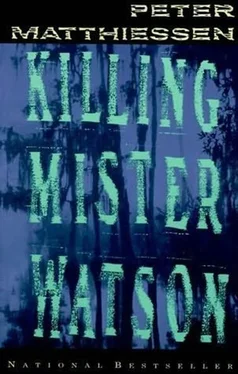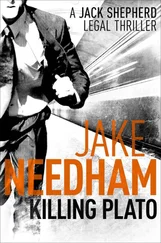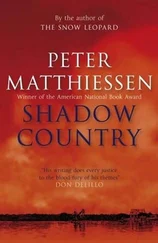Peter Matthiessen - Killing Mister Watson
Здесь есть возможность читать онлайн «Peter Matthiessen - Killing Mister Watson» весь текст электронной книги совершенно бесплатно (целиком полную версию без сокращений). В некоторых случаях можно слушать аудио, скачать через торрент в формате fb2 и присутствует краткое содержание. Жанр: Современная проза, на английском языке. Описание произведения, (предисловие) а так же отзывы посетителей доступны на портале библиотеки ЛибКат.
- Название:Killing Mister Watson
- Автор:
- Жанр:
- Год:неизвестен
- ISBN:нет данных
- Рейтинг книги:4 / 5. Голосов: 1
-
Избранное:Добавить в избранное
- Отзывы:
-
Ваша оценка:
- 80
- 1
- 2
- 3
- 4
- 5
Killing Mister Watson: краткое содержание, описание и аннотация
Предлагаем к чтению аннотацию, описание, краткое содержание или предисловие (зависит от того, что написал сам автор книги «Killing Mister Watson»). Если вы не нашли необходимую информацию о книге — напишите в комментариях, мы постараемся отыскать её.
Killing Mister Watson — читать онлайн бесплатно полную книгу (весь текст) целиком
Ниже представлен текст книги, разбитый по страницам. Система сохранения места последней прочитанной страницы, позволяет с удобством читать онлайн бесплатно книгу «Killing Mister Watson», без необходимости каждый раз заново искать на чём Вы остановились. Поставьте закладку, и сможете в любой момент перейти на страницу, на которой закончили чтение.
Интервал:
Закладка:
My mother was a Holland, Irish Catholic, and my daddy Henry Gilbert Johnson was no kin at all to the Charley Johnson bunch at Chokoloskee nor that Christ Johnson from Mound Key whose bad son Hubert run off later on with Liza, nor Johnny Johnson who was one of Josie Jenkins's seven husbands. Chokoloskee people called my dad a conch from the Bahamas, but he come from the Channel Isles of England to trade some furs and feathers off the Indins. I showed up in '89, same year as Lucius Watson. Later in life, me'n Lucius was always just a little bit in love, but not so's anyone would notice, even him.
Gilbert Johnson used to camp at Lost Man's before the Hamiltons came on south from Chatham River. I recall the day we found the Hamiltons at his Wood Key camp. I was just thirteen, Leon a few years older, and we took one look and my heart was throbbing and everything else too. My sister Rebecca felt the same for Eugene, so my dad got us out of there, but after a year, those two boys came and took us.
Mother Mary said, All right, but we had to marry-being the white person, she naturally made all the decisions in the family-so Gene and Leon married us nice and proper in the old Ocean Chapel in Key West. I never regretted it, I married a good man. But Becca's man was sly and ornery, and by the end of it, his own daddy wouldn't have one thing to do with him.
I guess Daddy Richard missed old Jean Chevelier, cause after he moved down to Wood Key, he got the same kind of scrappy friendship going with my daddy. Even when Dad come to roost alongside Hamiltons on Wood Key, spent his old age fooling with fish and boats, he'd look at Richard and just shake his head. "How I rue the day," he'd sigh, "that I ever fell afoul of these bloody Hamiltons!" I been saying that to Leon all my life!
A critical asset in E.J. Watson's tumultuous career was his strong connection with the powerful cattlemen and bankers of the west coast city of Fort Myers, Florida, commissioned as Fort Harvie during the Third Seminole War, then reactivated during the Civil War as a base for Union raiders harassing the cattle trains that were still supplying beef to the Confederacy. Should you care to inspect it, the following material from my History of Southwest Florida may give some indication of why the marriage of Mr. Watson's daughter to W.G. Langford had such profound reverberations on Watson's life.
Fort Myers's first cattleman, Jake Summerlin, had worked cattle from the age of seven, bartering the twenty slaves in his inheritance for his first herd of six thousand head in the 1840s. He was a veteran of the Seminole Wars and a pioneer cattleman on the Alachua Prairie, moving huge herds with his cowboys and a grub wagon all the way from the St. Johns River southwest across Florida to the Calusa Hatchee. In the Civil War, Jake Summerlin sold cattle on the hoof to the Confederacy and smuggled cattle through the Union blockade to sell in Cuba. In the last year of the War he sold herds to the Union, which paid better.
After the War, Fort Myers was abandoned, but by 1869, Summerlin and his partners were moving their herds south once more and swimming them across the Calusa Hatchee and down to the pens and docks at Puma Rassa, where Summerlin took over the old Army barracks. Leasing pens and docks from the International Ocean and Telegraph Company, he made a fortune, shipping ten thousand head of his wild range cattle to Cuba every year. The Spaniards came up the Calusa Hatchee to buy his longhorns at Cattle Dock Point, paying Old Jake in gold doubloons, which he left about in sacks, old wool socks, and cigar boxes.
Already the homesteaders were descending on south Florida, creaking through the woods in covered wagons hauled through the hot sand by two or three yokes of mules or oxen. The pistol shot of their cracked whips, echoing across the hot dry landscape, could be heard a country mile away. At the Calusa River these Baptist "crackers" found good river-bottom land and built thatch houses, grew good crops, experimented with pineapples and coconuts, sugar cane and cabbage, and citrus plantations. But with the Key West market so far to the south, perishable produce could not survive the slow hot schooner voyage, and the pioneer farmers subsisted on hunting and fishing, living off the land. One day, the railroad would surely arrive, erupting with Yankee tourists and investors waving new green bills, and these trains would carry the bountiful winter produce to the northern markets. The Calusa Hatchee would be dredged and the Everglades drained, and Fort Myers would take a leading place in the new century.
These were the intoxicated years when Hamilton Disston, tycoon of Philadelphia, contracted with the State of Florida to acquire four million acres of the Glades for one million dollars, on the condition that his Atlantic and Gulf Coast Canal and Okeechobee Land Company drain the Kissimmee-Okeechobee region by way of the Calusa Hatchee to bring this natural wonder under man's dominion. Already Disston's mighty dredge was far upriver, past the Calusa mounds of clear white sand, past the ancient canals that joined the mounds to the clear and tranquil flow of the silent river. Churning out clouds of smoke and noise that drifted for miles across the shining waters, the dredge had shifted and resettled the vast muds of the Everglades in a mighty paroxysm of misdirected progress. By 1888, the dredge project had foundered, but not before the fragile water system had been broken, and the whole Okeechobee drainage opened to settlement, driving the remnant Indians farther southward into the Big Cypress. Through raw canals, the detritus and overflow of Okeechobee poured away westward, down the old Calusa River, which only a few years before had run black and clear over shimmering white sands of ancient shell.
Soon that white sand was covered over in dead mud and slime. The only one who seemed to care was the proprietor of the Punta Rassa Hotel, renamed the Tarpon House after a New York sportsman caught the first "silver king" an rod and reel in '85. Ever since, rich Yankees had flocked here in winter migration, pursuing the tarpon, Spanish mackerel, and kingfish, the snook and redfish that flashed through the emerald passes of the barrier islands. The millionaires paid handsomely to "rough it" at the Tarpon House, with its manly fare and rude bare floors, tin washbowls, china slop jars, and frontier spittoons. But now the Okeechobee muds, clouding the river, were turning the flow of silver fishes farther and farther offshore into the Gulf.
A newcomer, Jim Cole, was pleased by this evidence of human progress. Cole was soon in business with Captain Francis Hendry and son James in Cole & Hendry's general store, which in those days specialized in lumber. He called himself a cattleman, though from the start, this man seems to have been a dealer, less interested in cattle than quick sales. Cole also called himself a "boomer," since he aimed to make a boomtown of Fort Myers. His was the first place of business to install a kerosene street lamp and a sidewalk of white shell, barged from the gouged Indian mounds upriver. The year after his arrival, he pushed through the incorporation of the town, and within two years, his name-by now synonymous with the town's progress-was chronically cited in the Fort Myers Press for bold and exemplary civic deeds. He soon sold his share of Cole & Hendry to another cattleman, Dr. T.E. Langford, and the year after that he bought a Langford & Hendry cattle schooner, the old Lily White, after which he dubbed himself "Captain Cole," though never a soldier or ship's captain in his life.
With the Democratic victory in 1886, Cole organized the cattlemen in a crusade to create a brave new county named in honor of the Confederate general Robert E. Lee. Frustrated by lack of roads and rail, by the withholding of Monroe County funds for a bridge to the north bank of the river, and by the lack of interest shown by Monroe County officials in faraway Key West, the cattlemen sought to separate the north part of Monroe as Lee County, with Fort Myers as the county seat. The "county fathers," Captains F.A. Hendry and Jim Cole, were made county commissioners, and it was Cole who rammed through Doc Langford's cousin as first county sheriff, a job "ol' T.W." performed without risk or distinction until a young cowhand named Frank B. Tippins swept him out of office twelve years later.
Читать дальшеИнтервал:
Закладка:
Похожие книги на «Killing Mister Watson»
Представляем Вашему вниманию похожие книги на «Killing Mister Watson» списком для выбора. Мы отобрали схожую по названию и смыслу литературу в надежде предоставить читателям больше вариантов отыскать новые, интересные, ещё непрочитанные произведения.
Обсуждение, отзывы о книге «Killing Mister Watson» и просто собственные мнения читателей. Оставьте ваши комментарии, напишите, что Вы думаете о произведении, его смысле или главных героях. Укажите что конкретно понравилось, а что нет, и почему Вы так считаете.












